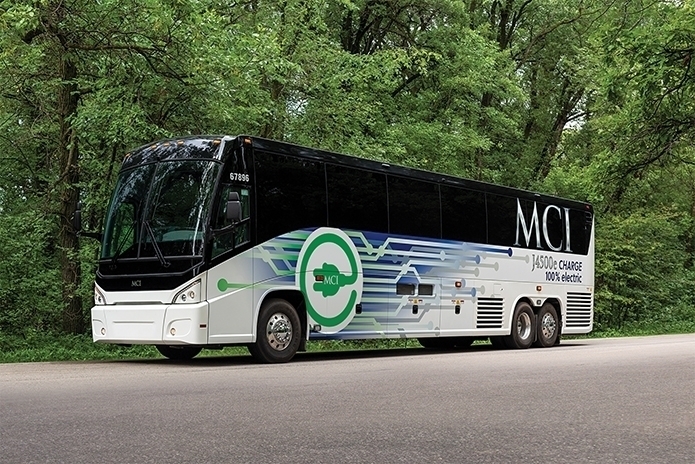
After five years as part of NFI Group Inc. (NFI), in 2020 MCI’s business was combined with that of New Flyer as part of the “NFI Forward” initiative. The combined entity continues to offer all models of both New Flyer transit buses and MCI motorcoaches, making it the industry’s widest range of models and propulsion systems.
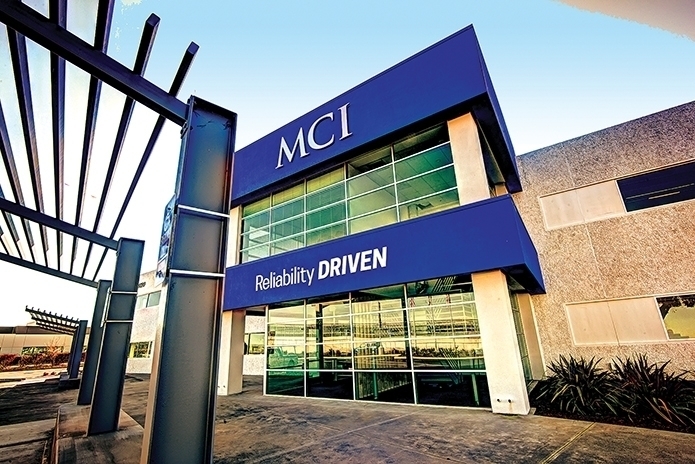
Combining efforts and streamlining service
MCI public market sales were combined under New Flyer Vice President of Sales and Marketing Jennifer McNeill, while MCI private market sales are led by Brent Maitland, Vice President, Private Sector Sales and Marketing. Both McNeill and Maitland report to Chris Stoddart, President of New Flyer and MCI. Pat Ziska will continue to lead the private new coach sales team. David Mailhot leads the MCI field technical support team, and Steve Batho continues to lead MCI service centers as part of the New Flyer Customer Care and technical customer support group.
Maitland said that this initiative was a long-term process already in motion by NFI but accelerated by the impact of COVID-19 on the private coach and public bus industries.
“It was a logical evolution, with our businesses sharing resources, collaborating more closely as teams, harmonizing systems, and eventually becoming one entity with a common operational backbone with independent, industry-leading product brands,” he said. “COVID-19 created, in many areas, an accelerated environment for new plans, and through this we have reiterated our commitment to provide exceptional customer support to get through this.”
Under the new structure, MCI and New Flyer have combined common engineering, procurement, accounting, sales, and finance processes. Most importantly, each brand can now utilize the other’s service teams and facility network to continue offering industry-leading support for all customers.
“MCI is a workhorse in fleets across the country,” said Chris Stoddart, president of New Flyer and MCI. “While our public sector business continues, our private sector operators – including many family businesses – have been devastated, and we will be there for them during the recovery. We are doing everything possible to support and advocate for them through this challenging and unpredictable time.”
“The private sector is an important part of our business, and we know it will recover – we stand ready to support when it does,” he said.
The MCI and New Flyer teams also know that resiliency is a crucial consideration in any roadmap for the future. Government and industry investment will be needed to make this happen, but, across NFI, and especially across New Flyer and MCI, the team is relentlessly focused on developing, delivering, and servicing mobility solutions – including buses and coaches, technology, and infrastructure – that keep customers moving.
“Our commitment to this industry and our customers, in every aspect – including field service and support – remains strong. Through combining New Flyer and MCI, we’ve strengthened our commitment and focus on responsiveness,” he said.
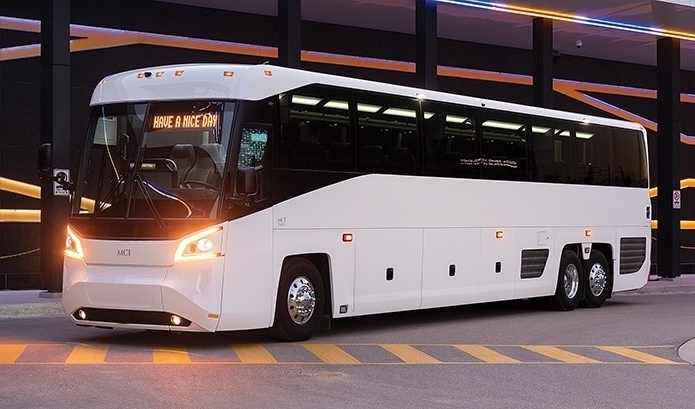
Stoddart said that MCI’s dedicated private sector team understands the needs of private operators and is ready to respond quickly as customers get back to service through the recovery process. Stoddart said NFI is optimistic this recovery will happen soon.
Stoddart also anticipates that each of NFI’s service facilities will soon offer comprehensive support for both MCI and New Flyer products. An example is the Ontario, California, facility, which is gearing up to support coaches in Southern California. This location taps right into the Group’s “Field Tech Army,” which is a network of resources that can support the seasoned field technical support team with customer issues.
Virtually every department between MCI and New Flyer is working together.
“We really are becoming a unified team,” Stoddart said. “While it takes some time to learn new systems and processes, we share information, attend meetings, collaborate, share resources, and relentlessly focus on servicing our private and public sector customers. “Together, we are working hard to evolve and innovate in order to become more responsive to our customers, and to ultimately provide comprehensive mobility solutions unmatched by any other.”
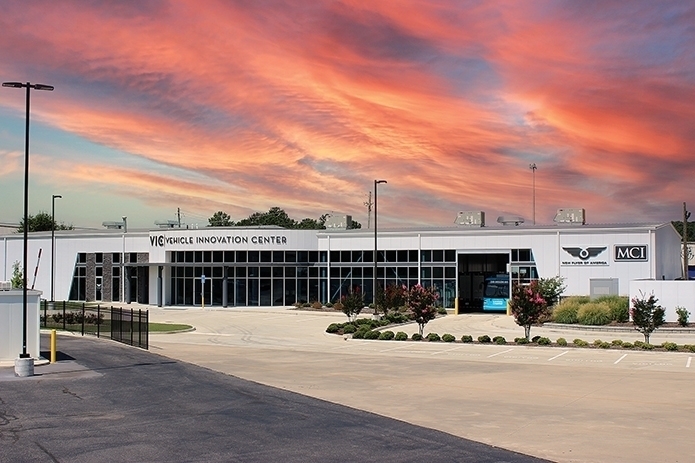
Recovery, Resiliency and Technology in the Future
Today, the NFI organization looks different than it did just a few years ago. Virtually all manufacturing facilities can produce battery-electric coaches and buses, and NFI is working closely to leverage the strengths of its in-house innovation and technology across all product brands and teams (New Flyer, MCI, ARBOC, Alexander Dennis, and NFI Parts).
“If you had asked five years ago if we would be in the infrastructure game for electric buses and coaches, I would have likely said no,” Stoddart said. “Quickly, we realized electric bus deployment relies almost entirely on infrastructure – and the design, commissioning, and readiness of infrastructure cannot be underestimated.”
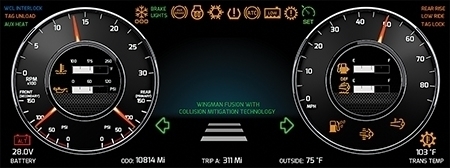 “So, today, we proudly offer New Flyer Infrastructure Solutions as a full suite service,” he continued. “This team, which has grown since first announcing it early 2019, is dedicated to providing safe, reliable services for smart, sustainable mobility projects – and today has installed nearly 170 chargers across America.”
“So, today, we proudly offer New Flyer Infrastructure Solutions as a full suite service,” he continued. “This team, which has grown since first announcing it early 2019, is dedicated to providing safe, reliable services for smart, sustainable mobility projects – and today has installed nearly 170 chargers across America.”
Stoddart said that no one in the industry 20 years ago could have predicted that operators would now manage bus fleets from smartphones, but that this ability has proven especially critical in understanding bus performance and energy usage
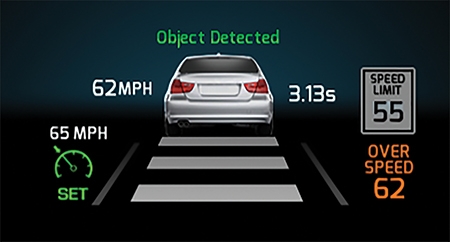
through extreme climates and conditions. The ability for rapid troubleshooting and diagnostics in real-time is critical and can be a game changer when conditions are less than ideal.
“The lessons we have learned have hit home, specifically with respect to zero-emission adoption,” he said. “Implementing renewable energy as a source of fuel, developing interoperability, and preparing for redundancy and emergency response are key elements of infrastructure deployment.”
In addition, NFI has worked to collaborate with industry leaders on both sides of the U.S.-Canada border to ensure development of charging standards to foster interoperability, and to best steward funds invested in zero-emission adoption. Today, MCI coaches and New Flyer buses are interoperable with most competitor OEMs and EVSEs (Electric Vehicle Supply Equipment), including ABB, Siemens, ChargePoint, and Heliox.
The road to recovery
The road to industry recovery will be driven by a vaccine, government relief, and restoring consumer confidence in bus travel.
Stoddart said that they have advocated hard for emergency funding to support customers – both public and private – through the pandemic, as well as for ongoing operational funding to buoy the essential service our industry provides. Without it, communities literally stop.
“We’re amidst one of the most challenging years of anyone’s generation, but looking ahead to when we get through this chapter – and we will – we know mobility will continue taking its place as the heartbeat of communities,” he continued.
David Mailhot, MCI national director – US Technical Solution Manager Group, said that the public and private coach industries’ biggest needs are cash infusions, followed by fleet reliability.
“The industries’ critical need is to be able to make the greatest amount of recovery revenue with the equipment already in service,” Mailhot said. “New coach sales are going to be much slower during this period, so, right now, operators need our support to get their existing fleets running reliably and cost-effectively.”
The recovery will take time and require steady support. MCI will keep its service and support structure vibrant and be there for customers when that recovery does happen. With the aid of New Flyer, MCI has access to even more locations and field technical resources to support its customers on that path.
Scott Robertson, NFI Parts vice president, customer service, said that NFI continues to prioritize field parts support throughout the pandemic, and to maintain optimized ordering from a central online inventory.
“Significant upgrades to the warehouse and its operating systems are geared toward error-proofing,” he said.
The NFI Parts team has also worked with customers on payment terms and keeping accounts open as much as possible.
“MCI is reliability driven,” Robertson said, “so we want NFI Parts to be the most reliable parts partner for MCI customers.”
Product development and innovation
MCI remains committed to new product initiatives across multiple platforms, including the D-Coach, its electric program, public transit orders, high- and low-floor variants, advanced driver assistance systems (or “ADAS”), and telematics / analytics.
Improvements to the D-Coach
The MCI D-Series has been the workhorse of the market for many years, with more units on the road that any other series. The next generation D-Series was ushered into market with a launch at APTA in 2017 where MCI featured the revolutionary D45 CRT LE with innovative Low Entry (LE) vestibule to improve accessibility. The new model set the pace for some other major advancements, which include common vehicle architecture including structure and electrical systems that are common with other D models and the J-Series. This common design approach simplifies engineering and troubleshooting, making for a more reliable coach. The new units are produced on a common manufacturing line and the interior enhancements that gave the J4500 leading interior space and ultimately legroom also carried into this range. This model was accelerated into market with a large order from a San Francisco Bay Area social media company that used them for employee transportation.
The next model to be released was the D4520 (D Series, 45’ 2020 launch), which features an optional rear-mounted wheelchair lift – this model supports tour, charter, and scheduled service applications. In addition to improved legroom, there is also improved ride quality and better maneuverability with Independent Front Suspension and MDSS (MCI Dynamic Suspension System), as well as a swing-out radiator with electric cooling fans. This model also brings improvements in baggage bay capacity, which is especially important in airport applications. Early production units are currently in customer demo service.
The public sector variant of this model, the D45 CRT (Commuter Rapid Transit) follows in mid-2021 and includes a standard mid-coach wheelchair lift and the specific commuter market features currently found in the D4000/D4500 models. Other next-generation D-coach models including 40’ coach lengths and a purpose-built Inmate Security Transportation Vehicle (ISTV) will round out the range in the next couple of years. The current D4000/D4500, D4005/D4505 and D4000 ISTV models will be eventually be replaced by the next generation models, but for several years they will overlap.
MCI CHARGE program
MCI is continuing forward with its industry leading MCI CHARGE program, which includes the J4500e and D45 CRTe LE all-electric coach models, several of which have already been running in customer demo service. Maitland said, “This is another real-life example of MCI leveraging New Flyer’s experience and expertise in electric vehicle technology.”
The D45 CRTe LE CHARGE commuter coach is notable for its low-floor design, aimed at quickly and efficiently loading and unloading passengers with disabilities. The vehicle’s boarding time is comparable to a low-floor transit vehicle and features a mid-coach low-entry vestibule (and automated ramp) with seating optimized for fast boarding and wheelchairs. The coach allows for 54 passengers, or 52 passengers including two mobility devices.
The electrified J4500e CHARGE tour and charter coach promises to be the company’s most versatile electric vehicle. The J4500’s high-floor design allows for more battery packs, making it the longest-range vehicle in MCI’s fleet, Maitland said. The J4500e features seating for up to 60 passengers with best-in-class legroom and usable floor space. Because of its robust structure, Maitland said the J4500e will be an electric workhorse like its diesel-powered predecessors.
The company designed the MCI J4500e CHARGE and MCI D45 CRTe LE CHARGE to feature a common electrical architecture. Both coaches include a high-torque, 300 kW Siemens 3320 lb-ft electric drive system designed to handle long distance applications and highway speeds, and Nickel Manganese Cobalt (NMC) batteries charged by the latest 150 kWh depot chargers with an industry standard CCS 1 plug. The NMC batteries in the 544 kWh J4500e configuration allow for a full charge in less than four hours. Following the launch of these two coach models, remaining models such as the D45 CRT and D4520 will be electrified.
“Despite COVID-19, our team never really deviated from our plans for engineering and development of the CHARGE,” said Michael McDonald, PH. D, MCI Sustainable Transportation Specialist. “We knew we needed to continue breaking barriers in this technology, because we know that the market will bounce back. Even though some customers delayed plans to purchase electric coaches, the interest never actually went away.”
Public Transit places first MCI electric order
In May 2020, MCI secured its first electric coach order with a transit operator in Southern California, for 25 D45 CRTe LE CHARGE coaches. While MCI has been active with electric coach demonstrations since 2019 with its J4500e, this order helped to accelerate the development of the D45 CRTe LE to meet customer deliveries in 2021.
Full production will begin later in 2021, Maitland said with the D45 CRTe LE then the J4500e.
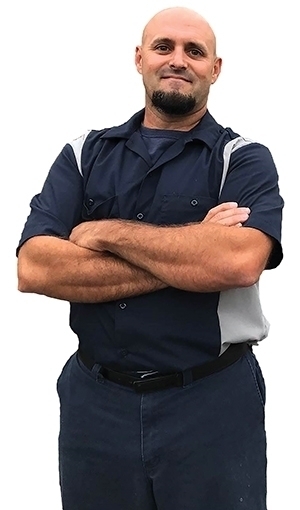
Advanced Driver Assistance Systems (ADAS) and Autonomous Vehicle (AV) Technology
MCI is a leader in ADAS, with first-to-market features such as Bendix Wingman Fusion, while on the New Flyer side the company is in active testing and development of the SAE J3016 Level 4 automated battery-electric transit bus. New Flyer announced its intention to develop the Level 4 bus over a year ago, then announced its partnership with Robotic Research to pursue this vision, and has been developing and testing the technology ever since.
“Our biggest focus is the safety gains and improvements offered by ADAS and AV technology,” Stoddart said. “If we can prevent passenger and/or vehicle collisions, and potentially help save lives, then our pursuit of making shared roadways safer will be fulfilled.”
Pushing ahead with broad solutions
Stoddart concluded that NFI’s real power – and, by extension, MCI as well – is a talented team of people and an extensive product lineup featuring MCI, New Flyer, Alexander Dennis, and ARBOC Specialty Vehicles. The unique ability to service customers across multiple markets, and with advanced technologies, different capabilities and models, makes NFI an attractive partner for both private operators and public agencies.
“There are always some challenges during times of change and evolution, but I can clearly see that the company is stronger because of the New Flyer and MCI combination,” he said. “It truly is becoming a ‘family of brands,’ with bench strengths in product innovation and technology, to offer our customers leading edge solutions that make their lives easier.”
